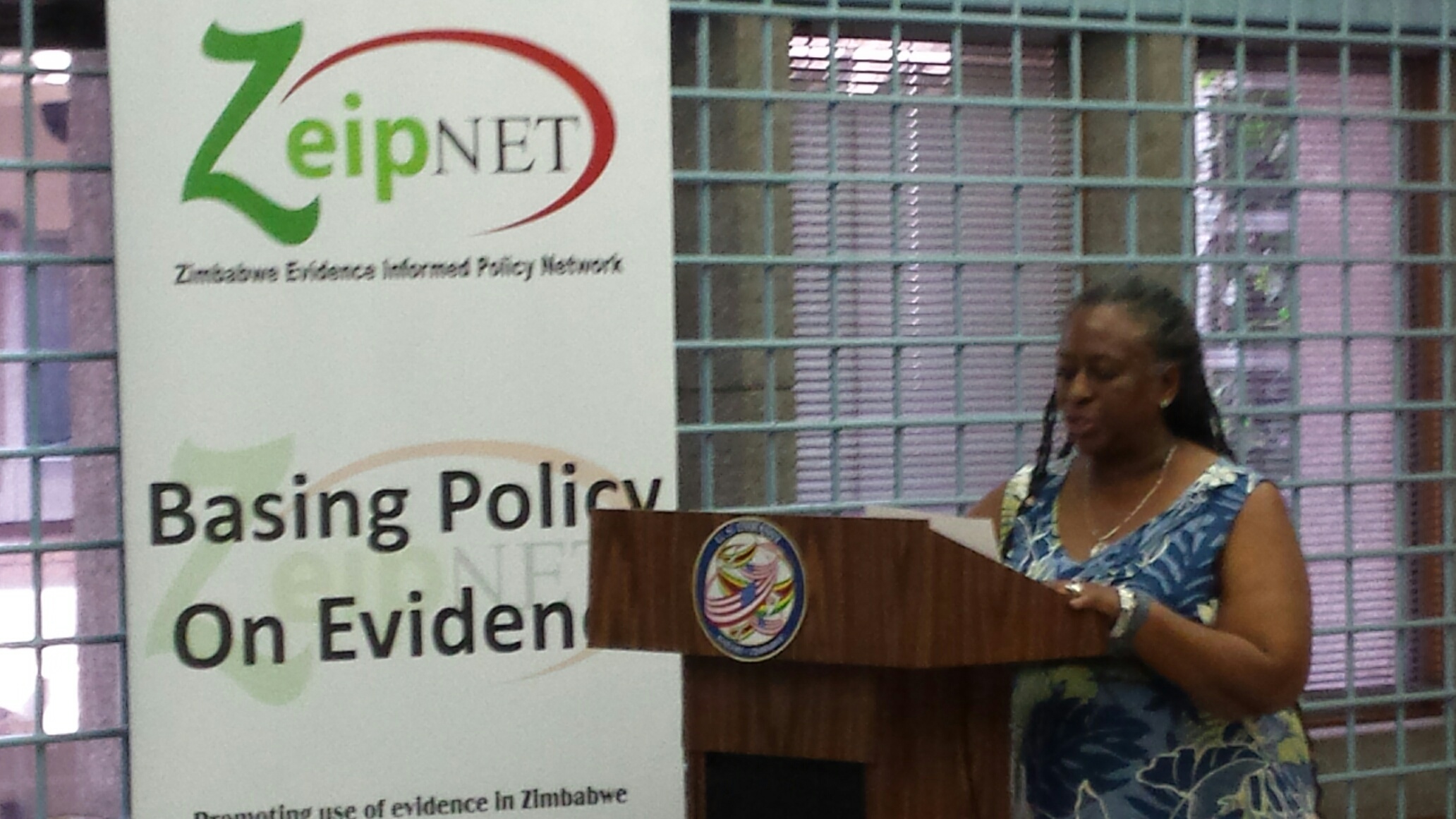
Knowledge cafe in Zimbabwe discusses evidence-informed policy making with stakeholders
Guest post by Ronald Munatsi from ZeipNET, Zimbabwe
There are examples of successful policies in Zimbabwe, informed by evidence. But, since independence, policy making has largely been reactionary and ideologically driven. This has resulted in many policy inconsistencies and failures. The need to build institutional capacity to make informed policy decisions in Zimbabwe is especially urgent now as Zimbabwe faces major economic challenges.
Last month, the Zimbabwe Evidence Informed Policy Network (ZeipNET), in partnership with the America Embassy Public Affairs Section in Harare, held a knowledge café on evidence-informed policy making in Zimbabwe. Speakers included: Onesimo Maguwu, USAID public health expert from; Charles Dhewa, knowledge management speacialist from a Zimbabwean agro-based think-tank Knowledge Transfer Africa; and Grey Chivanda, former policy-maker from the ministry of higher and tertiary education.
Here are the discussion highlights:
In the 1980s there were pockets of good, well-intended policies that were based on evidence. For example, much of the success in manpower development in Zimbabwe is attributed to the Manpower Planning and Development Act (1984). This policy was a result of findings and recommendations from the Manpower Development Survey of 1982. There are also some examples of successful evidence-informed policy in the health sector (such as those relating to male circumcision and maternal health).
After gaining independence, the government sent officials to study policy planning and specific scientific issues and established departments in all ministries responsible for research, policy and planning.
At that time, Grey Chivanda said, most of the evidence used to inform policy decisions was obtained through partnerships with multinational organizations like UNESCO, the Africa Union, the World Bank and the IMF.
But the complexity of policy making is still not fully understood.
From the government’s perspective, policy making is linear. This makes it very difficult to use evidence effectively to inform policy decisions throughout the policy-making cycle.
Civil-society organizations have the power to influence policy but do not always use evidence to inform their interventions.
The media possesses immense power to influence policy decisions in Zimbabwe, but both state and independent media lack capacity to report effectively on scientific issues with a policy bearing.
Another challenge observed was that people are not used to questioning government’s policy decisions. What’s more, members of the public, particularly the youth, feel that policy making is for technocrats, not for them.
Importantly, lack of public involvement stifles the need for transparency and accountability in the process.
However, on a positive note, social media – especially WhatsApp – is allowing the public to expose government failures and contribute to political discourse.
The volatility of evidence is also a barrier. Evidence may be relevant today but obsolete tomorrow. And evidence is not neutral. It is a tool used to frame a policy decision. Context and application therefore play a significant role in using evidence. This requires knowledge and skills on the part of decision makers.
We need to create better synergies between researchers and policymakers.
The government feels that research institutions and civil society do little to engage policymakers when identifying their research priorities – but they expect government to make use of their research findings.
There is, therefore, a need for collaborative identification of evidence gaps and research priority areas. If governments and researchers identify the research problem collaboratively, there is dual ownership and evidence is more likely to be used.
Researchers should package evidence for policymakers at different levels. As one delegate pointed out, “being a good researcher does not make one a good communicator.” This is particularly critical at local government and in Parliament, where some members do not possess sufficient literacy skills to comprehend issues in English or scientific language.
Although there may be challenges to ensuring evidence-informed policy making (including political will and availability of resources) there are also many opportunities. The structures exist but they are isolated. The task now is to harmonize these and establish a working national evidence infrastructure to support evidence-informed policy making in Zimbabwe.
This blog was first published in researchtoaction.org.




